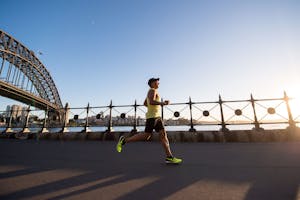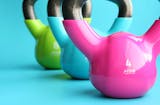As the weather gets warmer and warmer, we usually move our daily exercise from inside to outside in order to enjoy the benefits of the sun. However, if you’re a person who’s suffered from allergies throughout their life, even a little exercise can be considered a challenge. With all the sniffling, sneezing, and staring through watery eyes, you might wonder if it is even safe to exercise while suffering from seasonal allergies.
There are in fact, many ways to avoid this, and if you follow the recommendations we’ve outlined below, your workout will be significantly less irritating or sniffily. Bonus points, it will be so much easier to get the desired body come summer.

Contents
Over-the-counter remedies and prescribed medication
A variety of over-the-counter medications can help alleviate allergy symptoms. They include oral antihistamines which can help with relieving sneezing, itching, or watery eyes. Another form of medication are decongestants, which provide temporary relief from nasal congestion, and also come in a form of a spray. They should be used for no longer than a few days in a row. Prolonged use can actually worsen your allergy symptoms.
However, when home remedies are not enough, a prescribed medication should be considered. It is best if you take skin or blood tests beforehand to find out what exactly triggers your allergy reaction. Another good option, that proves useful is Prednisone, which should ideally be administered for up to two weeks regularly in order to fully work. It is a prescription medicine, so before you’re able to buy it you need to consult a doctor.
Keep an eye on what time of the day it is
You might want to avoid particular parts of the day depending on the nature of your allergies. For example, ragweed pollen concentrations are normally highest in the early afternoon and early evening, while grass pollen is highest in the late afternoon and early evening. Scheduling workouts for later in the day is advised in most cases. Also if you live in the city, pollen can be carried by the wind, causing levels to peak around midday.
Wearing a face mask when out during pollen season is also advised. You should further rinse your nose with saline as soon as you get home to get rid of any particles. When pollen levels are high, some nasal sprays will make it easier for you to exercise.
Check the weather
Pollen levels in your area are updated non-stop and can usually be found on the Internet or in your local newspaper. If pollen counts are expected to be exceptionally high on a particular day, it’s best to stay inside. Pollen concentrations are often highest on warm, windy mornings and lowest on cool, wet days.
Furthermore, as ozone and other pollutants are major irritants for people suffering from allergies, you should keep an eye on their levels. People with allergies may be affected by the exhaust from vehicles, especially if they live in a city or exercise near a busy road.
Pollutants aren’t the sole source of concern. Diesel particles released by automobiles and trucks can bind to allergens such as pollen. There is now evidence that this can make allergens much stronger and more dangerous. On days when pollution levels are particularly severe, you may want to skip your typical outdoor workout.
On bad days, exercise indoors
Exercising outside should be fine most of the time. However, when pollen counts or ozone rates are high, or the weather is so cool that your lungs are irritated, exercising indoors can be a suitable temporary remedy.
Just keep in mind that indoor exercise comes with its own set of allergy concerns. In fact, pushing and puffing on a treadmill in a gloomy and dusty basement may expose you to more allergens or irritants than you would outside so make sure your workout equipment is stored in a clean, mold-free environment.

Final Thoughts
Seasonal allergies don’t have to hinder you from working out at the gym or at home. You can exercise outside while avoiding seasonal allergy symptoms like a runny nose, watery eyes, and congestion with a little planning and creativity. The bottom line on exercising outside with seasonal allergies is that if you take the proper precautions, you will be able to get in a fantastic workout without coughing and sneezing too much.






Comments are off this post!